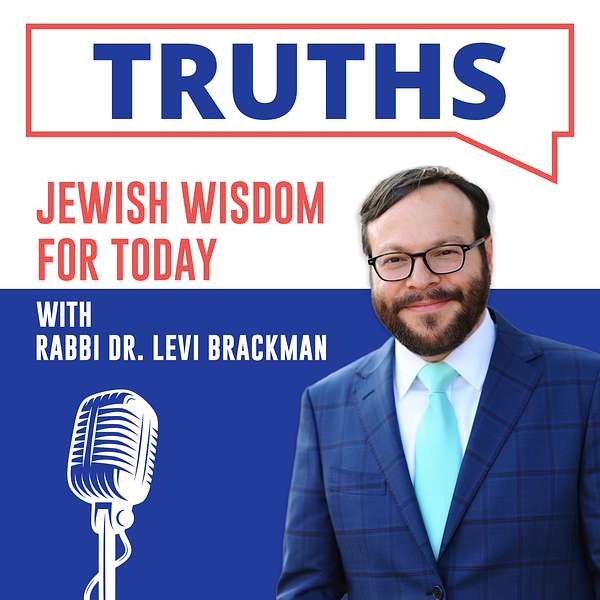
Truths - Jewish Wisdom for Today
Hosted by Rabbi Dr. Levi Brackman, "Truths: Jewish Wisdom for Today" is an insightful podcast exploring the confluence of religion, science, and philosophy.
The podcast serves as a platform for curious minds who value nuance and pursue wisdom. It is not designed for individuals seeking absolute truths or those inclined towards unquestioning religious adherence, but instead for those who traverse our rapidly evolving world as seekers and explorers.
With the mission to impart valuable insights rooted in Jewish perspective that resonate with contemporary times, "Truths: Jewish Wisdom for Today" learns from distinguished guests, shares insights with listeners, and adapts with time and context. This podcast stands as a guiding light for those questing for wisdom and a nuanced understanding of spirituality amid the complexities of the modern world.
Truths - Jewish Wisdom for Today
Why Torah Needs Two Sections on False Prophets - Mishpatim
Use Left/Right to seek, Home/End to jump to start or end. Hold shift to jump forward or backward.
In this episode of Truths: Jewish Wisdom for Today, Levi Brackman delves into the topic of false prophets as presented in two Torah portions, Re'eh and Shoftim, from Deuteronomy. He begins by exploring why the Torah addresses false prophets in two separate sections (Chapters 13 and 18) rather than consolidating them into one. Through his analysis, Levi concludes that these two sections represent different contexts that justify their separation.
Chapter 13 emphasizes that the Torah is immutable, meaning no prophet can add to or take away from it. Any prophet who attempts to introduce new laws or encourage following other gods is a false prophet, and the Torah is clear that it remains unchangeable for all time.
Chapter 18, on the other hand, warns against practices like sorcery and divination, which were common among non-Israelite nations. Instead, God communicated through a prophet from among the Israelites. This prophet would guide in areas not explicitly covered by the Torah, such as whether to go to war, and his legitimacy would be confirmed if his predictions came true.
Levi further discusses the role of a true prophet as both a spiritual leader and a guide for the nation in uncertain times. He also addresses the implications of these teachings for modern-day beliefs, particularly how they negate the possibility of new prophets altering the Torah and challenging certain Christian beliefs that involve adding to the Torah.
In conclusion, Levi ties together the lessons from both chapters, emphasizing that the Torah remains unchanged, and any prophet attempting to modify it is false. The role of the prophet, he suggests, is to guide people in following the existing Torah and offer direction in ambiguous matters, providing a sense of guidance and support in uncertain times.
Levi Brackman is a rabbi, Ph.D. in psychology, best-selling author of Jewish Wisdom for Business Success, and founder of Invown, a platform for real estate fundraising and investing.
